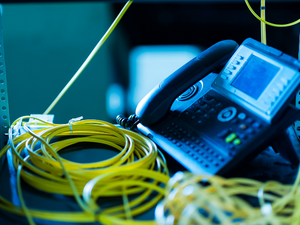 There’s a new threat to be aware of if you own an android device. Microsoft recently warned that their researchers had spotted a new toll fraud malware strain wreaking havoc in the Android ecosystem.
There’s a new threat to be aware of if you own an android device. Microsoft recently warned that their researchers had spotted a new toll fraud malware strain wreaking havoc in the Android ecosystem.
Toll fraud is a form of billing fraud. It is a scheme whereby bad actors attempt to trick unsuspecting victims into either calling or sending an SMS to a premium number.
In this case, however, the scheme doesn’t work over WiFi so it forces the device the user is on to connect to the mobile operator’s network.
What typically happens in a non-scam situation is that if a user wants to subscribe to paid content, they need to use WAP (Wireless Application Protocol) and they need to switch from WiFi to the mobile operator’s network.
Most of the time, the network operator will send a one-time password for the customer to confirm their choice.
The threat actors running this scam don’t do that. The toll fraud malware makes the switch automatically and without informing the user. In fact, it actively suppresses warnings that might alert the user to what’s going on. The result is that the user winds up with a hefty bill for a service they didn’t even know they were signing up for.
This is accomplished via JavaScipt injection which is hardly new. Although in this case, it’s being implemented in a novel fashion and is designed to keep the whole operation as discreet as possible.
The following items happen completely under the radar:
- Disabling the WiFi connection
- Navigation to the subscription page and auto clicking the subscription button
- Intercepting the one-time password in cases where one is used
- Send the OTP code to the service provider as necessary
- And cancelling SMS notifications
This is a tricky one to defend against, so be sure your employees are aware and on the lookout for mysterious charges on their accounts.





